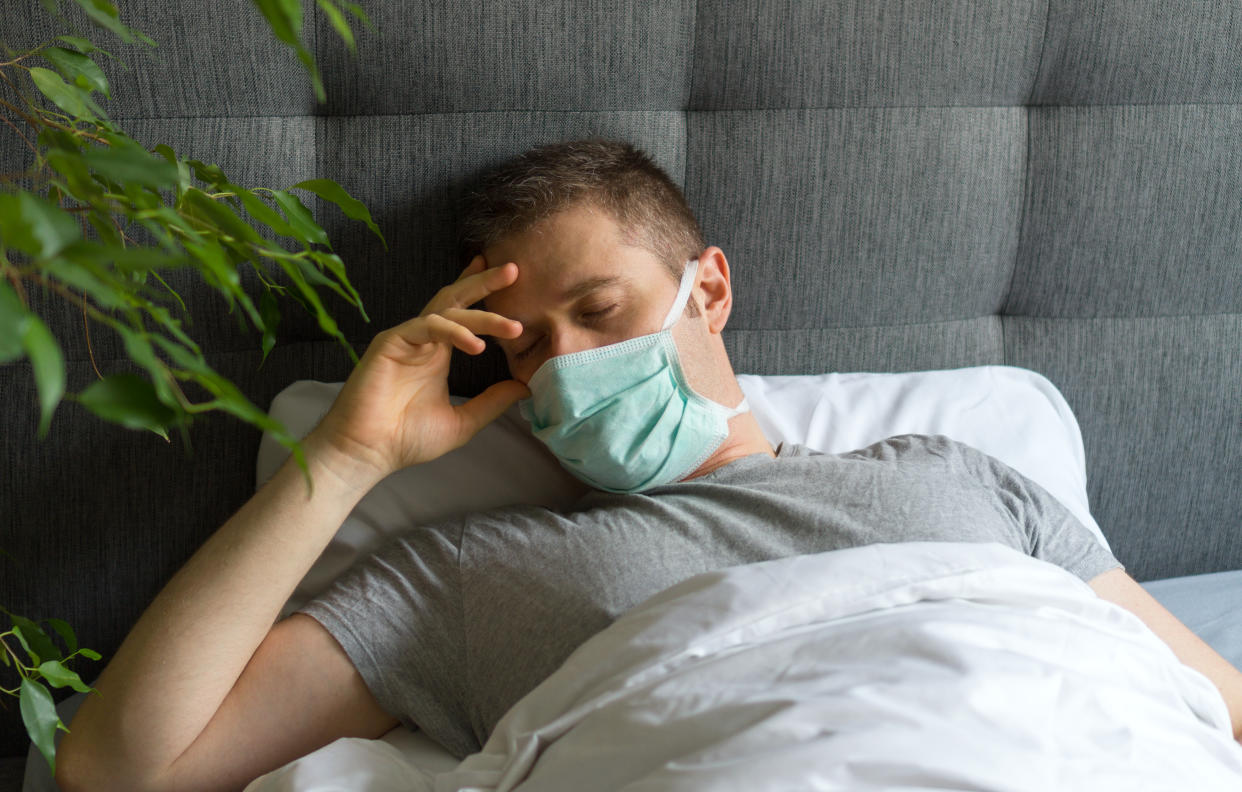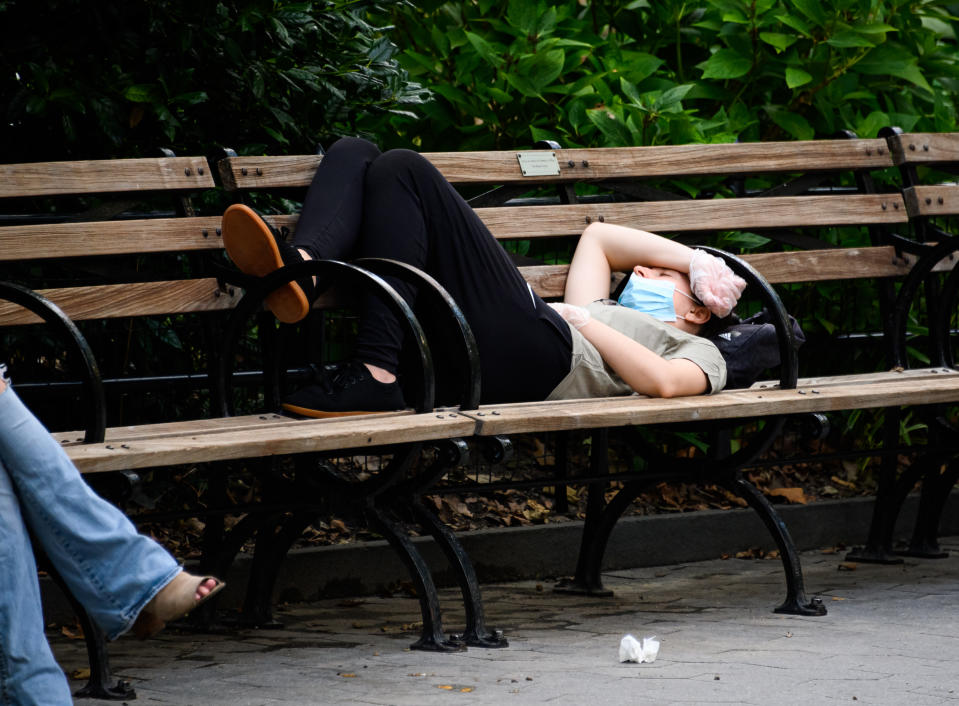Chronic fatigue emerging as coronavirus complication

Chronic fatigue may be a side effect of overcoming the coronavirus.
Early research suggests the infection is mild in four out of five cases, with most making a full recovery.
A relatively small number of survivors, however, appear to be coming down with so-called post-COVID syndrome – defined as lingering complications after the virus has been cleared from the body.
Dr Anthony Fauci, director of the US National Institute of Allergy and Infectious Diseases, has said an “extraordinary” number of survivors develop symptoms that are “strikingly similar” to chronic fatigue syndrome.
An official survey of 292 people who overcame the infection also found more than a third (35%) were lacking energy two to three weeks after testing positive.
Actor Tom Hanks, 63, complained of feeling “very fatigued all the time” when he caught the infection while filming in Australia in March. The Academy Award winner added, however, his discomfort was “pretty much done in two weeks”.
Read more: Harvard scientist calls for ‘crappy’ coronavirus tests

‘Strikingly similar’ to chronic fatigue syndrome
Chronic fatigue syndrome, also known as myalgic encephalomyelitis (ME), generally leaves patients feeling extremely tired and generally unwell.
In severe cases, a patient may be unable to carry out day to day activities, which may affect their mental health.
At least 260,000 people are said to have chronic fatigue in the UK.
In the US, between 836,000 and 2.5 million Americans were thought to have the condition in 2015, however, most were undiagnosed.
Read more: Reopening schools 'could trigger second peak' if test and trace isn't improved
Although it is unclear exactly what causes chronic fatigue, it can be triggered by viral infections like glandular fever.
Most patients improve over time, however, some never make a full recovery.
Post-viral fatigue, feeling exhausted, can also theoretically occur after fighting off any virus.
Speaking of the coronavirus, Dr Fauci told Medscape in July: “Even after you clear the virus, there are post-viral symptoms.
“I know, because I follow on the phone a lot of people who call me up and talk about their course.
“It's extraordinary how many people have a post-viral syndrome that's very strikingly similar to myalgic encephalomyelitis/chronic fatigue syndrome.”
Read more: Two in five with a lung condition will shield until there is a vaccine
Of the 292 survivors the US Centers for Disease Control and Prevention (CDC) surveyed, 274 developed at least one symptom while infectious.
When interviewed two to three weeks after testing positive, these patients each reported around seven of the centre’s 17 symptoms. Thirty-five per cent noted unresolved fatigue.
The NHS lists the main signs of infection as fever, a cough, and a loss of taste or smell.
The CDC’s definition is considerably broader, covering everything from a headache and runny nose to nausea and diarrhoea.
Chronic fatigue ‘feels like a living death’
Research has suggested it can take a while for coronavirus survivors to get fully back on their feet.
Guidance from the UK government states that even in mild cases, the infection’s tell-tale cough or loss of smell or taste can “last for several weeks once the infection has gone”.
Early analysis of Chinese data by the World Health Organization revealed patients with mild symptoms had generally “clinically recovered” at around two weeks, while those with more severe or critical illness took between three and six weeks to get back on their feet.
Research has suggested people who go on to develop chronic fatigue have elevated levels of two molecules, called interleukin-6 and interleukin-10, that cause inflammation.
These are also higher than normal in severely ill coronavirus patients, suggesting activation of the immune system may promote inflammation that leads to fatigue, Dr Frances Williams from King’s College London wrote in The Conversation.
Calls have been made for greater research into so-called post-COVID syndrome, with some scientists questioning whether it is a condition in its own right.
One who knows the after effects of the coronavirus all too well is CNN newsreader Chris Cuomo, who tested positive for the infection on 31 March.
“I can’t recover from workouts the way I did before,” he told the news outlet.
Many chronic fatigue patients find overexercising makes their symptoms worse, with the NHS advising physical activity is built up gradually.
Scientists plan to investigate how the coronavirus may trigger fatigue, with Dr Ami Mac from the Stanford Genome Technology Center saying the pandemic “gives us an unprecedented opportunity to advance our understanding of post-viral disease”.
“This [outbreak] could result in a longstanding public health disaster leaving in its wake untold numbers of new sufferers of a condition that feels like a ‘living death’ for those of us afflicted,” said Dr Mac, who has chronic fatigue.



